
CoconutOil.com is one of the leading publishers of information on the Internet regarding coconut oil and Alzheimer’s Disease. As this news of coconut oil’s effectiveness in dementia and Alzheimer’s increases, more and more people are trying coconut oil with their loved ones suffering from Alzheimer’s Disease and dementia and seeing tremendous results. See our main article regarding why coconut oil may be so effective in fighting Alzheimer’s and other neurological diseases. We have been covering the news on the health benefits of coconut oil for 12 years now.
Thanks to the Internet and social media, this news about coconut oil and Alzheimer’s is spreading very fast, and many remarkable testimonials are being published. Dr. Mary Newport’s story about her husband Steve from 2008 received national attention from CBN earlier this year, and popular TV doctor, Dr. Oz, has also given some positive air time to coconut oil recently.
So naturally the national organization for Alzheimer’s Disease, The Alzheimer’s Association, has to deal with all of the attention that coconut oil is receiving, and they did so last week on their blog. In a blog post by Elizabeth Edgerly, Ph.D., the chief program officer for the Alzheimer’s Association, Northern California and Northern Nevada Chapter, they addressed publicly the issue of Alzheimer’s and coconut oil that so many people apparently had been contacting them about. Here is what Elizabeth Edgerly wrote:
Unfortunately, there just isn’t any creditable science to support this idea (of coconut oil being effective in people with Alzheimer’s.) It is impossible for us to know how well coconut oil does or does not work in Alzheimer’s disease because there have not been rigorous, large-scale research studies done. Because there haven’t been any large studies to test the effectiveness of coconut oil, we just can’t say whether it really helps people with Alzheimer’s disease. Maybe it does, maybe it doesn’t. I personally suspect that it has little effect on Alzheimer’s symptoms but, to be fair, I haven’t had any family members, friends or clients who’ve tried it. My rule of thumb is that if the risks and costs are low, you might consider trying it. If the risks or costs are high, don’t chance it. Think about how you would feel if you gave your loved one something and they lost ground and independence as a result. Some alternative therapies have substantial risk associated with them; be careful and don’t assume that something that is “natural” is safe. If you are considering trying coconut oil, please consult your doctor first to make sure it will do no harm to the person with dementia
You can read her entire comments here.
Being a blog post, comments were allowed fortunately. Here is what one commentor named Melissa wrote (at least it was still there at the time of publication of this article):
I will say that this is a personal choice for anyone debating whether to try adding coconut oil to the diet of a loved one with Alzheimer’s. In MY experience, it has been effective but it’s not a cure (as of yet!!). It has been effective in the things that matter the most: my 67 year old father has come back to us!! He participates in conversations again. He no longer seems spaced out. He smiles again. He helps around the house washing dishes and dusting, etc. As far as his memory is concerned, his recent memory has improved. Enough that his primary care physician has noticed the improvement and is now interested in the research behind my father’s new diet. I could be here all day talking about the things that have improved but in the end this is a personal decision. But I leave you with a question…what do you have to lose??
Melissa’s experience echos that of many others, and we have documented quite a few of them on our Alzheimer’s and Coconut Oil research page. Her comments are very similar to statements we are hearing by others: “my 67 year old father has come back to us!!”
Indeed, as Melissa asked, what does one stand to lose from trying coconut oil? And why is the Alzheimer’s Association trying to warn and scare people by implying it could be harmful? Coconut oil is not a medicine, but a dietary oil that has been consumed by BILLIONS of people in tropical cultures for thousands of years.
But even more importantly, why is it that the Alzheimer’s Association, with revenues of over $230 million per year, has yet to spend even one cent on studying coconut oil? Dr. Mary Newport presented her case study on her husband Steve’s progress with coconut oil back in 2007, and requested to present the information to the attendees at their yearly conference. Or at least to have a booth where she could pass out her case study!
In her book Alzheimer’s Disease: What If There Was a Cure? (Basic Health Publications), Dr. Newport reports how the Alzheimer’s Association stonewalled her and prevented her from presenting her study or even having a booth at their annual conference. She did attend the conference that year (2007) as an attendee and NOT as a presenter, but the Alzheimer’s Association apparently felt so threatened by her presence that they assigned a security guard to follow her around the entire conference! For some reason, her remarkable story which chronicled her husband’s nearly full recovery from Alzheimer’s disease was something they did not want her disseminating.
So now 5 years later the news about coconut oil and Alzheimer’s is spreading like wildfire, and the official response of the Alzheimer’s Association is “there just isn’t any creditable science to support this idea.” (I assume Dr. Edgerly meant “credible” as there certainly is evidence that can be “credited” to hundreds if not thousands of people now who have gone ahead and tried coconut oil without waiting for the “science” to be conducted.) If you are a donor to the non-profit Alzheimer’s Association, which according to their 2011 annual report takes in over $230 million in revenues a year, you should be asking them “why hasn’t coconut oil been studied?” Dr. Newport, a neonatology medical doctor and the medical director of the newborn intensive care unit at Spring Hill Regional Hospital in Florida, told them about coconut oil back in 2007, and they treated her like a criminal.
So where is all the money for Alzheimer’s research going? After all, much of the money is coming from our tax dollars, in addition to donations. A review of the Alzheimer’s Association’s last available tax returns shows that 27% of their revenues is spent on salaries and management, and much of the remaining 73% goes to medical colleges, universities, and hospitals for research.
So why aren’t these places researching coconut oil? Apparently because coconut oil could never be patented as a natural product, and because drugs are so much more profitable. A study published by ProPublica last year and reported by the New York Times and Dr. Mercola shows that much of the research done at these places is conducted by doctors on the payroll of major pharmaceutical companies.
Earlier this year, a US Court of Appeals judge ruled that a case regarding Alzheimer’s research fraud at Harvard Medical School and its teaching colleges, brought on by a whistle-blower, was to continue. As reported by Vera Sharav:
The case involves the largest Alzheimer’s disease research grants awarded by the National Institutes of Health (from 1980 through 2007) for a large project aimed at identifying early physical signs of Alzheimer’s by scanning certain regions of the brain with MRIs.
Dr. Jones was the chief statistician for the NIH grant. He blew the whistle after realizing that measurements used to demonstrate the reliability of the study had been secretly altered. Without these alterations, Dr. Jones explained, there was no statistical significance to the major findings of the study. When he insisted that the altered measurements be subjected to an independent reliability study, and that the manipulated results could not be presented as part of a $15 million federal grant extension application, he was terminated and his career came to an end. Read the full article here.
What is certainly coincidental to this story is that the research grant for Alzheimer’s Disease went through 2007, the same year that Dr. Newport tried to present her evidence on coconut oil to the Alzheimer’s Association’s annual conference. So when the Alzheimer’s Association and others trot out their argument from silence fallacy again regarding the lack of long-term “scientific” studies on coconut oil and Alzheimer’s, ask them what they have been doing with those hundreds of millions of research dollars contributed by donors and our tax dollars since 2007 when this issue became known to them? In the meantime, keep your eye here on CoconutOil.com as we report the truth regarding coconut oil, statin drugs, cholesterol, and other key issues that affect the health of our precious senior population.
Virgin Coconut Oil Beats Drugs in Treating Alzheimer’s
A Holistic Guide to Geriatric Care – eBook
In this book we look at the problems and causes of Alzheimer’s as they are related to an epidemic of prescription drugs being marketed to seniors, and we look at the strong evidence for dietary intervention, starting with coconut oil.
We bring you the stories of 10 different families who saw Alzheimer’s lessened or reversed by adding coconut oil to their diet, which is representative of thousands of others who are experiencing similar results. We offer guidelines on usage and types of coconut oil to consider, as well as other non-drug tips for holistic geriatric care.
Our target audience is the millions of caregivers out there loving caring for our senior population who will find it difficult to get this information from their doctors or medical professionals not trained in these areas.
Read Virgin Coconut Oil Beats Drugs in Treating Alzheimer’s on your mobile device!
$1.99
About the author: Unlike many people who write about coconut oil by simply reading about it, Brian Shilhavy actually lived in a coconut producing area of the Philippines for several years with his family, observing firsthand the differences between the diet and health of the younger generation and those of his wife’s parents’ generation still consuming a traditional diet. This led to years of studying Philippine nutrition and dietary patterns first hand while living in a rural farming community in the Philippines. Brian is the author of the best-selling book: Virgin Coconut Oil: How it has changed people’s lives and how it can change yours!
Read the Virgin Coconut Oil eBook on Your Mobile Device!



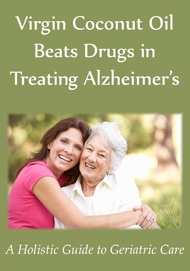

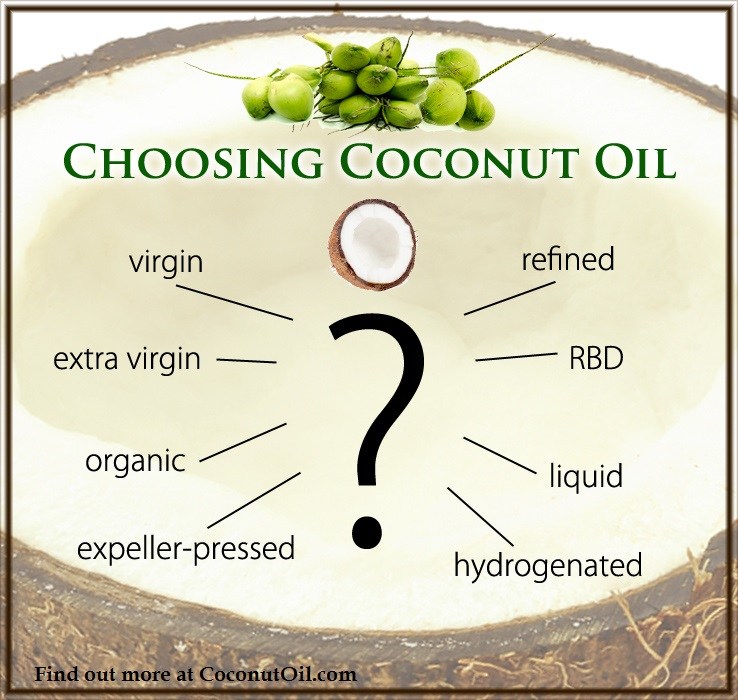

 The FDA has NOT Banned Trans Fats! Traditional Saturated Fats like Coconut Oil Continue to Shine for Alzheimer's Disease but are Condemned by U.S. Dietary Advice
The FDA has NOT Banned Trans Fats! Traditional Saturated Fats like Coconut Oil Continue to Shine for Alzheimer's Disease but are Condemned by U.S. Dietary Advice The Evidence of Coconut Oil's Superiority Over Drugs in Destroying Pathogens Continues to be Published in Peer-Reviewed Journals
The Evidence of Coconut Oil's Superiority Over Drugs in Destroying Pathogens Continues to be Published in Peer-Reviewed Journals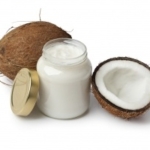 Study: Virgin Coconut Oil Protects Neuronal Damage and Mortality after a Stroke Incidence
Study: Virgin Coconut Oil Protects Neuronal Damage and Mortality after a Stroke Incidence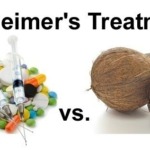 Another Phase 3 Trial Failure to Develop an Alzheimer's Drug Shows Why Virgin Coconut Oil is Needed to Prevent Dementia
Another Phase 3 Trial Failure to Develop an Alzheimer's Drug Shows Why Virgin Coconut Oil is Needed to Prevent Dementia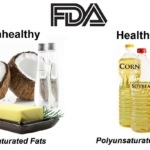 FDA Food Police want to Dictate What Foods are "Healthy" in New Guidelines Criminalizing Traditional Fats Like Butter and Coconut Oil
FDA Food Police want to Dictate What Foods are "Healthy" in New Guidelines Criminalizing Traditional Fats Like Butter and Coconut Oil
10 Comments